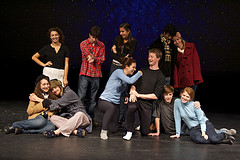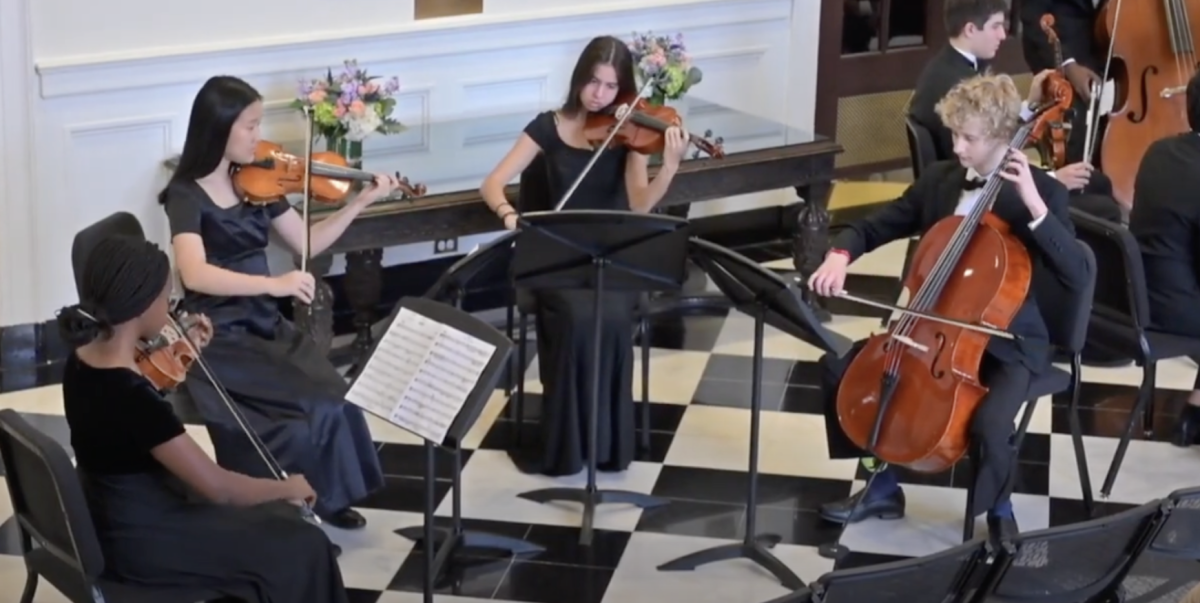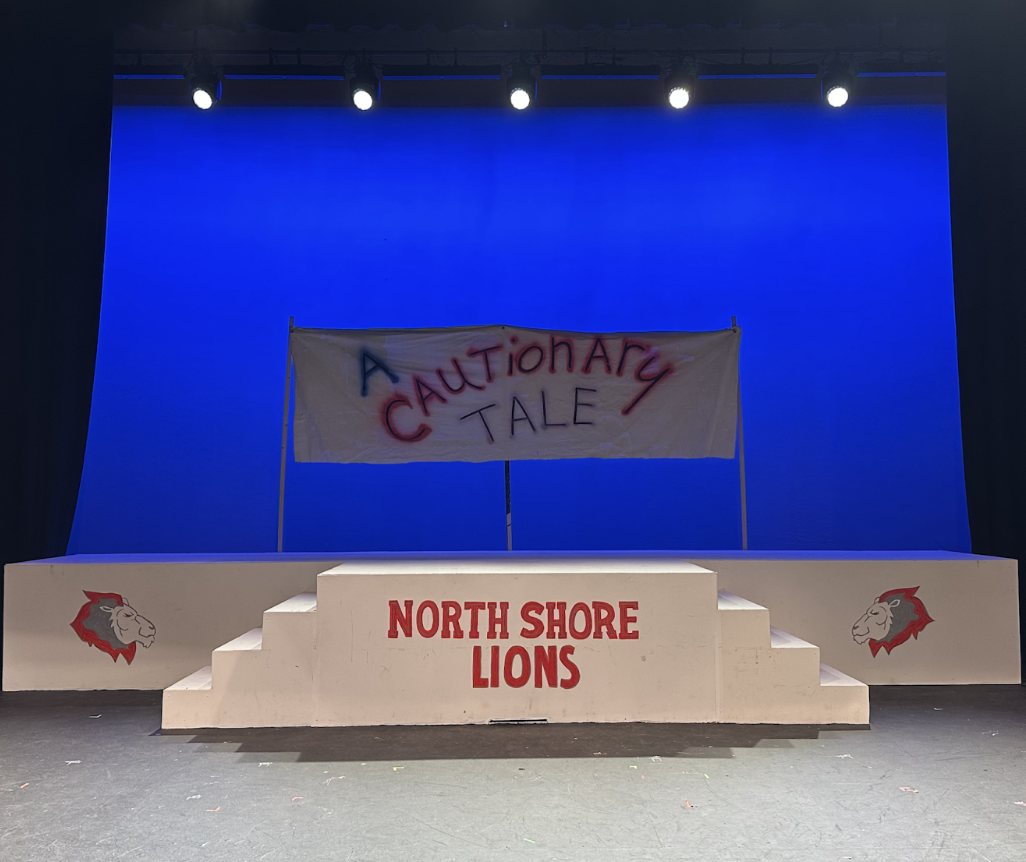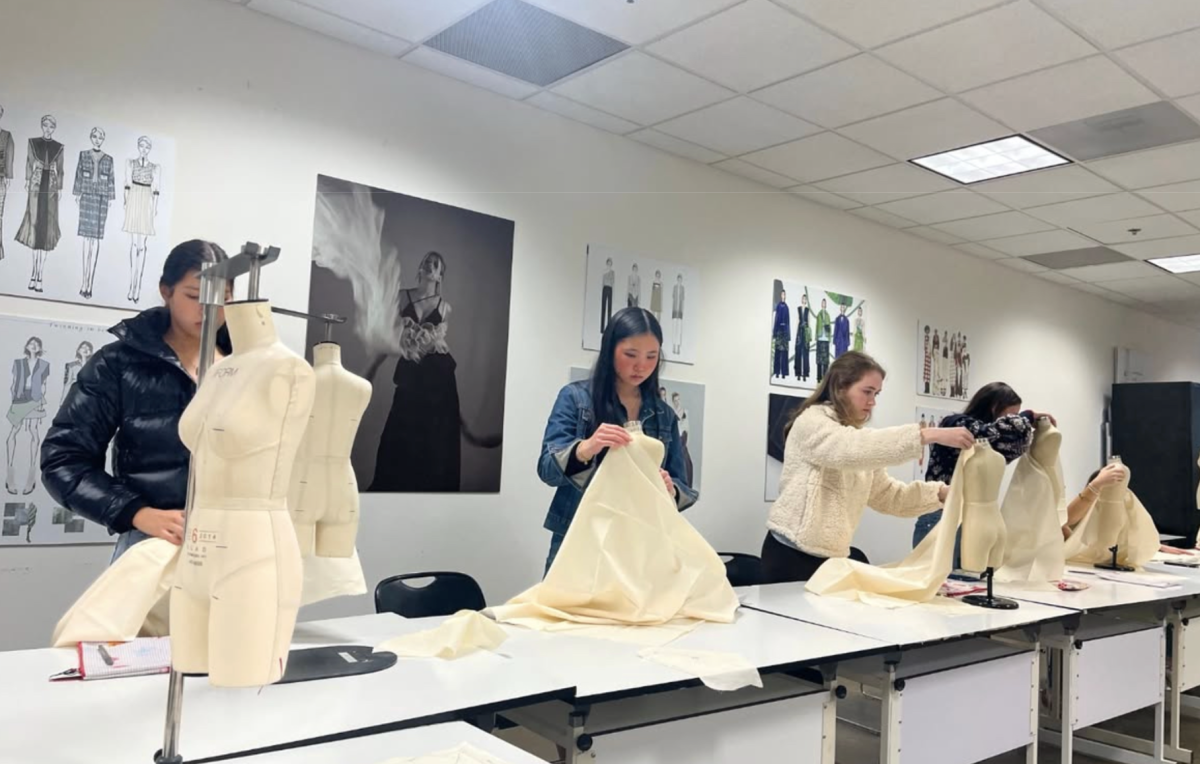Composed of nine short plays, Almost, Maine explores the whimsical, quirky, elusive nature of love. It was written by American actor and playwright John Cariani. This fall, the Westminster players put on their version of the play, taking on the various vignettes set in a fictitious and remote territory in Maine. English teacher Maggie Blake directed the one-act show, which was performed for the student body and later at the Lovett one-act competition.
“It was one of the most joyful experiences I’ve had,” said Blake. “We had a ton of fun.”
The play was different from a usual drama because it focused on several scenes set over the course of one night in the same Maine community.
“I’ve never been involved in a play,” said Blake, “where each scene has equal importance.”
Blake also noted the amount of involvement that students had in each other’s scenes.
“Even if I’m working on one scene, and Forester McClatchey, the student director, is working on another, ” said Blake, “there’s still a lot of room for students to take [a scene] and [work on it] for themselves. I was so impressed with what the students did with the amount of responsibility and authority they had.”
Community played a large role in the actors’ process, as working together proved essential for their success.
“I was surprised by how quickly the cast was supportive of other scenes, as opposed to just being consumed with their own scene,” said Blake. “The way they were able to see their scene as part of a larger story really surprised me.”
The actors, like sophomore Hannah Rose Adams, also observed this connection.
“The biggest thing I noticed about this show was the real community aspect of it all,” said Adams. “We stood in the wings at all times and watched our fellow actors. There was a great sense of acceptance and camaraderie on the set.”
There was not only a sense of togetherness but also a lot of mutual support and assistance.
“Every time we came off stage, we would congratulate each other and say, ‘You did great!’” said Adams. “If someone was nervous, we would always work to help calm them down.”
Adams appreciated the support by her fellow actors as she tackled playing the role of a recently widowed woman.
“I played the part of Glory,” Adams said, “who goes to Maine to see the northern lights and say goodbye [to her husband].”
Blake noted the closeness of the cast as a whole.
“The cast and the crew got so close by the end of the show,” said Blake. “The cooperation we all had was huge.”
The text of the play itself also proved to be an indispensable tool for the success of the production.
“The most noteworthy part of the play,” said McClatchey, “was its unassuming simplicity.”
McClatchey noted the differences the play had when compared to other forms of modern art.
“So much art today is overwrought and intentionally hard to understand,” said McClatchey, “but with Almost, Maine John Cariani decided to forgo that trend and make the play a simple, raw commentary on human love.”
The play ended up having a big impact on McClatchey, as it did on most of the cast.
“It’s hard not to be touched by the play,” said McClatchey. “It shows us the unspoken peculiarities of love that everyone knows but doesn’t know how to say. Those little moments—the silence on the bench, the shade of guilt in the fight–are what drew me in the most.”
Blake was similarly affected by the play.
“As soon as I read it, I fell in love with it,” said Blake. “It was an easy choice to [make, to perform the play].”
Blake noted the difficulty the actors had in relating to their characters but how successful they ultimately were.
“I think Almost, Maine deals with things that are maybe less relevant to the students,” said Blake, “but I was really impressed by how quickly they found a way to make these scenes true for them.”
At the end of the show’s run, the cast and crew felt satisfied with their performances.
“It went wonderfully,” McClatchey said. “I don’t think the crowd was expecting to enjoy it as much as they did. That raucous, raw enjoyment made me incredibly proud of everyone involved.”
In Almost, Maine, the sense of community established by the cast and crew ultimately helped the performance to achieve its success, along with the distinctive nature of its text and the character of the play itself.





